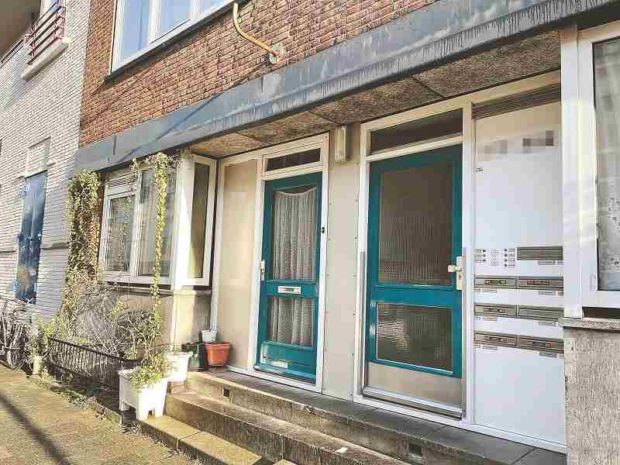
A suspected Chinese “overseas police” service station (door on left) in Rotterdam, the Netherlands. Photo taken on Nov. 21. Part of the image has been modified. The Japan News/Asia News Network
THE HAGUE — A recent report by a Spanish NGO has drawn renewed attention to the activities of so-called Chinese “overseas police” service stations, which monitor Chinese democracy activists and others living abroad.
According to a survey by the NGO, Safeguard Defenders, there are 102 such stations in 53 countries, including Japan.
Chinese national Wang Jingyu, 21, told The Yomiuri Shimbun he had been threatened by people affiliated with such stations. Wang, who is based in The Hague, uses social media to disseminate information about the democracy movement and human rights in China.
Wang said he has been receiving a steady stream of calls from unknown Chinese individuals since February. The callers claim to be members of an overseas police station in Rotterdam.
While living in China, Wang questioned the Chinese authorities’ response to clashes between Chinese and Indian troops and expressed support for the antigovernment protest movement in Hong Kong. But feeling that his safety was in danger, he frequently moved between countries, eventually ending up in The Hague.
Wang said his parents had been “detained.” In the calls, the men reportedly urged him to return home. “Don’t you care about your parents?” one caller reportedly asked. Another told him, “We won’t treat you badly.”
Wang claimed to have received more than 100 similar calls since February, and said he had been harassed in person, too. A man once threatened Wang by flashing a knife at him near the central station in The Hague, whispering that his intention was to kill him, Wang said.
When Wang consulted the Dutch police, a “station” member was arrested for making threats. However, according to Wang, “The calls continue to come in.”
The Chinese overseas police service stations identified by the NGO reportedly are set up separately from Chinese embassies and consulates. But such facilities are considered to be in violation of the Geneva Convention, which states that only diplomatic missions can perform administrative tasks in other countries.
On Nov. 2, China’s foreign ministry denied that the overseas stations were carrying out police activities and explained that they are bases that provide online support for overseas Chinese nationals who wish to renew their driver’s license.
However, the NGO says that the reality is that the stations are used as a means of cross-border repression. The NGO cites the cases of two Chinese nationals in Serbia and Spain who, like Wang, were threatened by station members, and who eventually were forced home even though they were in political exile.
RELATED STORIES
Two Chinese ‘police stations’ uncovered in Germany
Dutch probe alleged illegal Chinese ‘police stations’ in Netherlands
Canada probes reports of Chinese ‘police service stations’ in Toronto